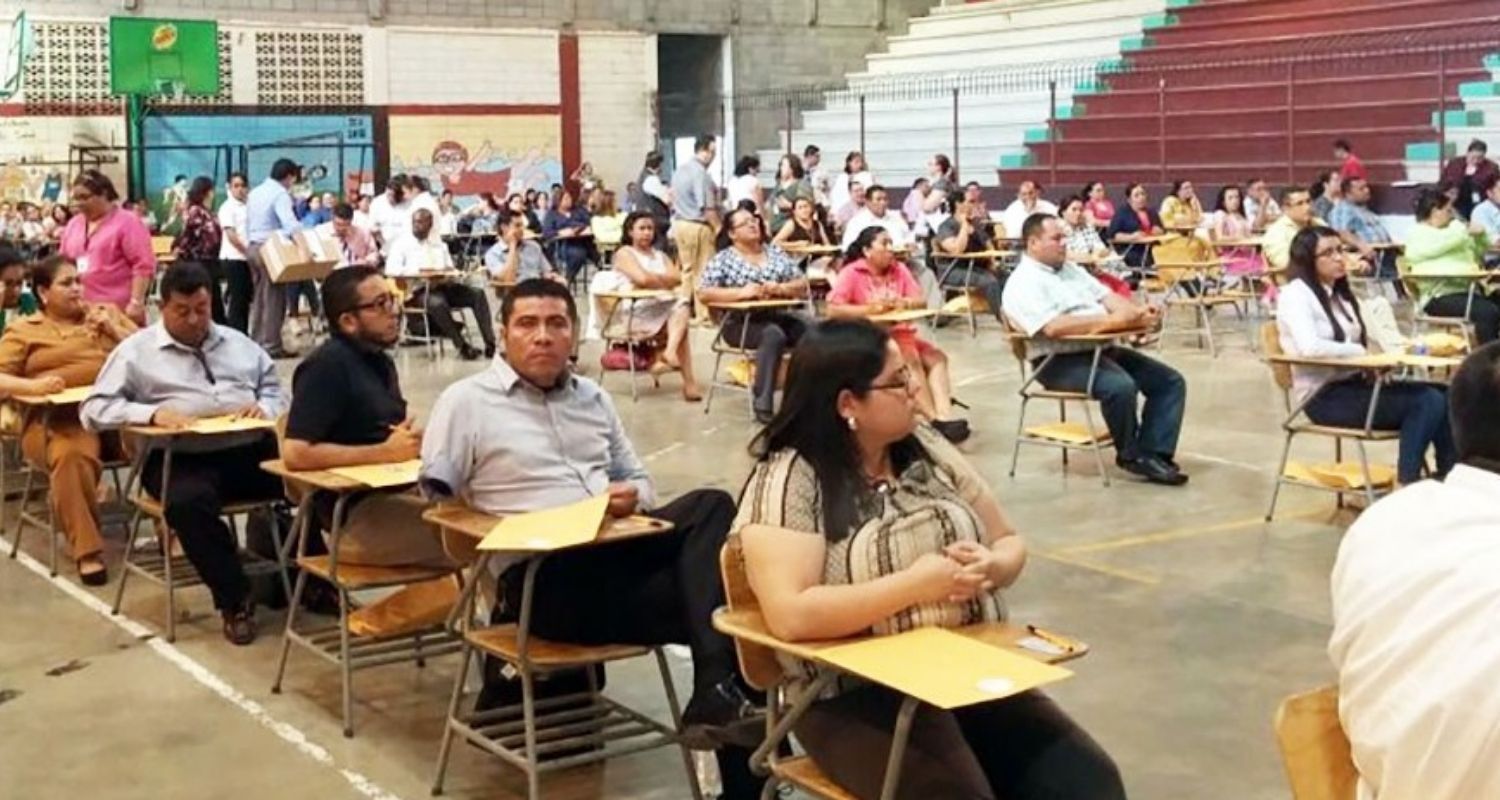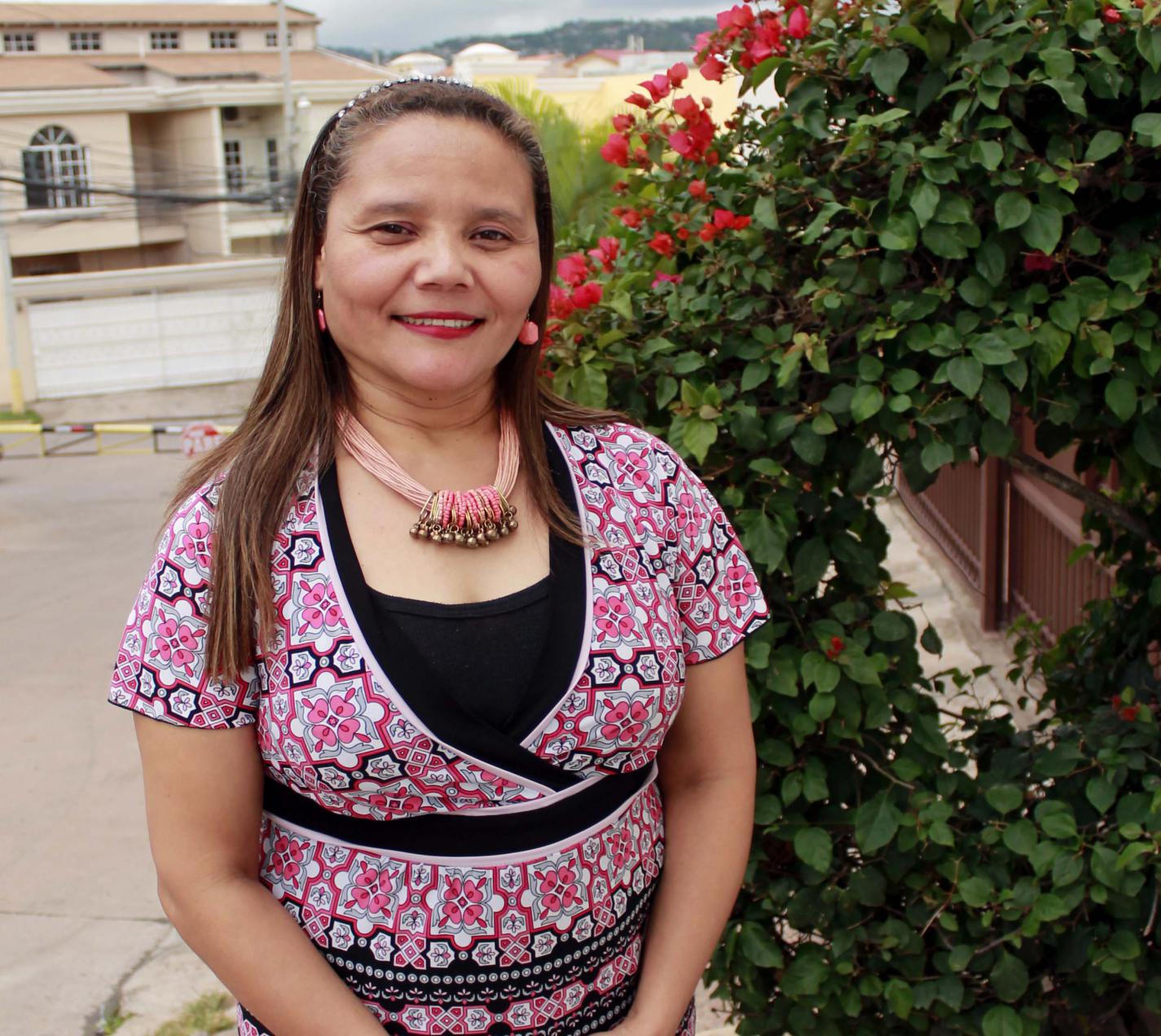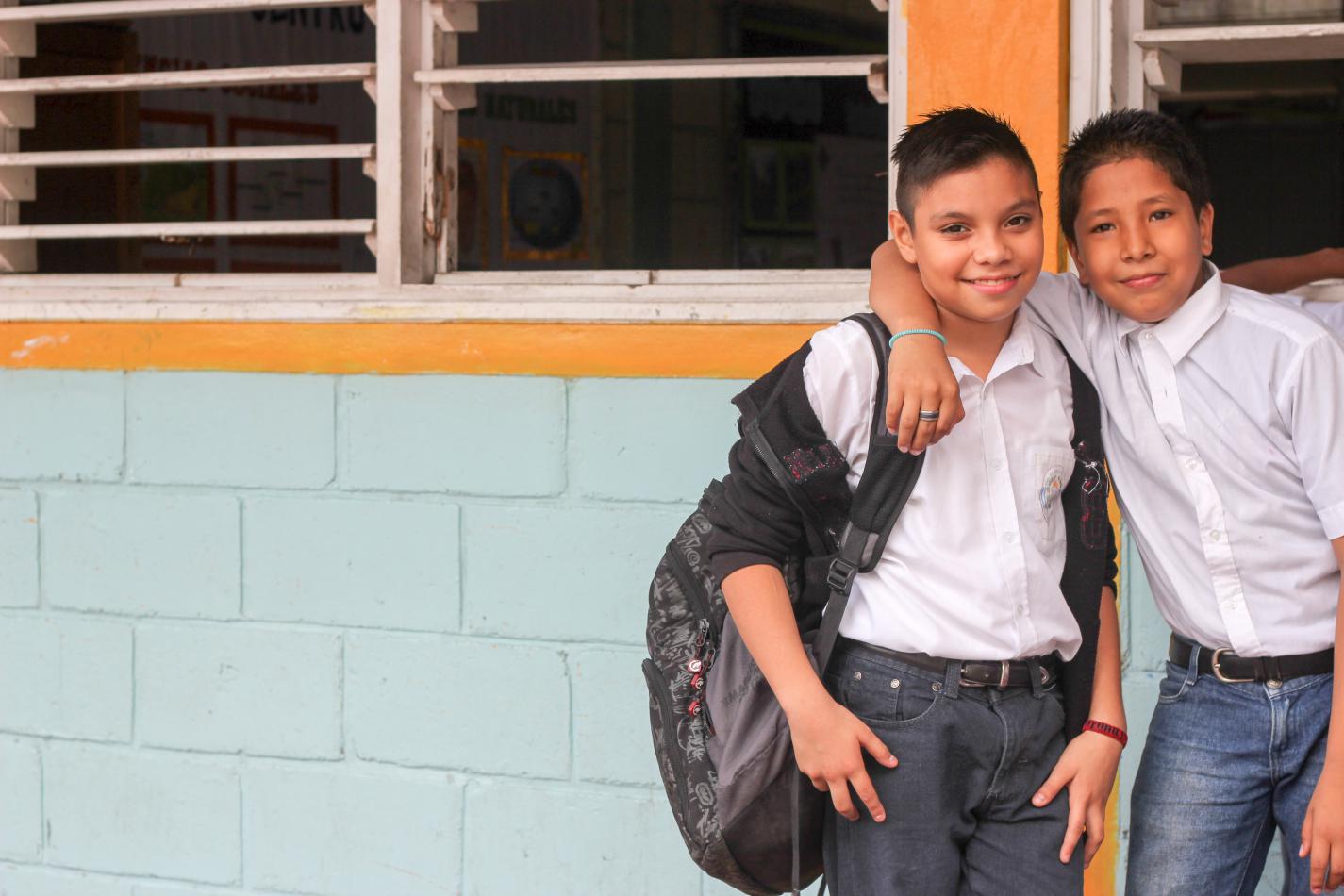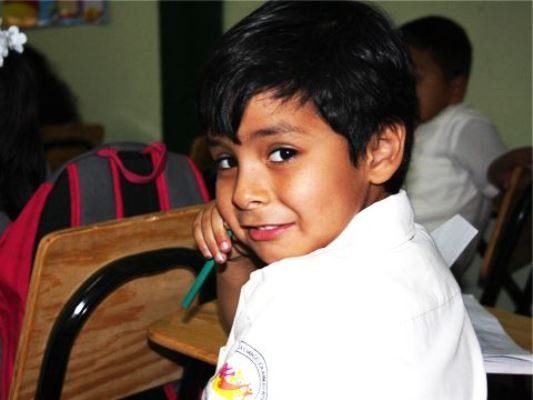This message wasn’t intended for her. It had originally been sent out to select applicants for high-ranking government jobs in the Ministry of Education, applicants in a process that Munguía, with the rest of the staff of TH and the Association for a More Just Society (ASJ, formerly known as AJS), had spent the past few months trying to ensure was transparent.
Up until now, the hiring process had been near-disastrous, filled with stops and starts and evidence of corruption. In just a few days, all candidates would take an evaluation test.
Now this text message looked like an invitation to cheat on the application test – helping to ensure that political favorites, not the truly qualified, would be in charge of key decisions in Honduras’ already-struggling education system.
She scrolled down, reading more details about the time and location of the meeting.
“Always drive with discretion” the message said.
Munguía screenshotted the text message and showed it to her boss, Carlos Hernández, the co-founder and president of ASJ. They had the time, date, and address of the secret meeting. The only thing they had to do, they agreed, was show up.
***
Ending corruption in Honduras’ education system is crucial. In a country where fewer than 30% of children read at or above their grade level, and only 27% are at grade level in mathematics, corruption robs funding from a government institution that already fails to meet children’s needs.
Even these dismal scores are an improvement over past years, improvements based largely on civil society and nonprofit organizations’ intervention in government corruption.
Since ASJ began to work against corruption in the Education sector in 2010, they have pushed strongly to monitor teachers’ attendance and the number of days that schools are open for children. Just this external auditing has resulted in the discovery and firing of thousands of “ghost teachers” – those who were receiving a paycheck but never teaching classes – and has increased public schools’ average number of school days from 125 per year to over 200.
These important advances notwithstanding, the Ministry of Education continues to struggle. In 2015, ASJ published a baseline study evaluating the Ministry of Education’s compliance with transparency and management standards. They scored just 42%.
Besides issues with purchasing school materials and evaluating teachers, ASJ uncovered serious problems with Department Directors of Education – administrators who served at the highest level of each of Honduras’ 18 geographic departments.
Department Directors manage school budgets, personnel, curriculum, and standardized testing for their region. They are responsible for implementing all education policies and for managing financial, technical, and logistical resources.
Unfortunately, until recently, these directors were political appointments whose work had little citizen oversight. What’s more, the laws regulating the way they were hired hadn’t been updated since 1966.
ASJ had already been working to change this. In 2011, ASJ helped push the Secretary of Education and Congress to pass a new law that would update and improve education in Honduras. One of the many recommendations ASJ made for this law was to make the hiring of Department Directors more transparent and with more external controls, avoiding corruption and political favors in their hiring process.
However, in 2016, despite increasing openness by the Ministry of Education to citizen oversight, the new law still wasn’t being implemented.
***
In early 2016, several months before Munguía received the text message, Honduras’ Department of Education began working with the “General Office of Civil Service” (which hires and oversees government personnel) to hire 78 new government employees – Department Directors of Education, and secretaries and support staff for their offices.
ASJ would only participate, they said, under the following conditions: they would be given access to all information about applicants, participate in all stages of the hiring process, invite other organizations to join them, and be free to withdraw from the process in case of noncompliance.
Weeks of uncertainty had already passed, and tensions were rising. Under pressure from civil society, Civil Service agreed to ASJ’s conditions.
Almost immediately after the process began, internal disagreements between the Ministry of Education and Civil Service caused the Ministry of Education to withdraw from the hiring process.
Recognizing that it was essential that the Ministry of Education be a part of hiring its own administrators, ASJ brought the two parties together to a meeting. Playing peacemaker, ASJ asked that the Ministry of Education join the hiring committee again, threatening to withdraw from the process themselves if this demand wasn’t met.
ASJ’s vocal signaling of errors was making the Civil Service look bad, but if ASJ withdrew from the process, it would look even worse. Reluctantly, Civil Service agreed to start the whole process over again.
***
The second effort to hire Department Directors gave Civil Service a fresh slate, but it soon became apparent that there were few improvements over the first process. Despite the oversight of multiple anti-corruption organizations, the process was still not transparent. Over protests of the anti-corruption organizations, the hiring committee pressed forward with their evaluations.
In May of 2016, 124 applicants took a written aptitude test. But, as their responses were scored and tabulated, it became clear that something was wrong. Only 17% of applicants had scored above 70%. The rest – the vast majority – had failed.
The Ministry of Education looked over the test and quickly determined that the test was not properly evaluating candidates, instead asking questions that were completely irrelevant to the positions they were applying for. They decided to nullify all test results.
But the problems with the hiring process went deeper – the poorly-written aptitude test was just scratching the surface. Calls for applicants were poorly publicized, and applicants weren’t given much time to put their applications together. Hiring manuals were being disregarded; important information wasn’t being published.
In light of all this, ASJ suggested that the Ministry of Education and Civil Service nullify not just the aptitude test, but the entire process up to that point, and start the process for a third time.
The Minister of Education, Marlon Escoto, agreed with ASJ, and voiced his support for an entirely new process. Civil Service didn’t reply to the request, though they did reschedule the test for a later date.
Three days before the rescheduled test would take place, the text message would find its way to Munguía’s phone.
***
On the day of the secret review session, members of ASJ’s security detail drove to the location included in the text message, a quiet hotel far outside the city.
Under the guise of planning an event on the property, the security guards toured the hotel, snapping pictures on their phones. They lingered near the main meeting room, surreptitiously snapping photos of a group of people bent over sheets of paper, studying.
“Hey,” one of them said, catching sight of them, “What are you doing here? Why are you taking photos?”
A swarm of 15 people soon surrounded the two guards, preventing them from leaving. In aggressive tones, they demanded that the guards delete the photos from their phones.
Cornered, the guards obliged, and only once the group of people saw the photos disappear did they let them leave.
But they already had the information they needed. The two men returned to the office, recovered the deleted images from their phones, and showed them to their colleagues.
“I know who that is,” one said. It was a familiar face – an employee from the office of the Vice-Minister of Education. This same employee had been linked to the illegal sale of government positions years before, but nothing was ever proven.
Things began to fall into place. This employee had ties to two anti-corruption groups who had been specifically named to review the test the applicants would take. Now, it seemed, he was using that special access to ensure that the next administrators would be the people that he wanted them to be – not coincidentally, all applicants invited to the review session were from a particular political party.
Armed with the message, incriminating photos, and binders full of information about irregularities in the hiring process, ASJ took their findings to the Ministry of Education and other partner organizations.
The false starts, repeated irregularities, and secret meetings left Munguía, Hernández, and Escoto deeply skeptical about the legitimacy of the hiring process. After deliberating together, the Ministry of Education, accompanied by ASJ and the other major anti-corruption organizations, all decided to withdraw from the hiring process just one day before the test was to have been given.
Undeterred, Civil Service planned to continue with the evaluation.
Frustrated, ASJ President Carlos Hernández decided to go straight to the President.
Carlos Hernández is a familiar face to Honduras’ President Juan Orlando Hernández. They meet frequently, as Carlos Hernández makes demands for more efficient and transparent government systems in Education, Health, Security, and the many other areas where ASJ works.
He called the President and left a message. A few hours later, the President returned his call. He agreed, he told Hernández, what they had uncovered was unacceptable. He would see about stopping the process.
***
The next day dawned sunny and hot. Over one hundred applicants arrived at the testing location, as did ASJ and their colleague organizations.























